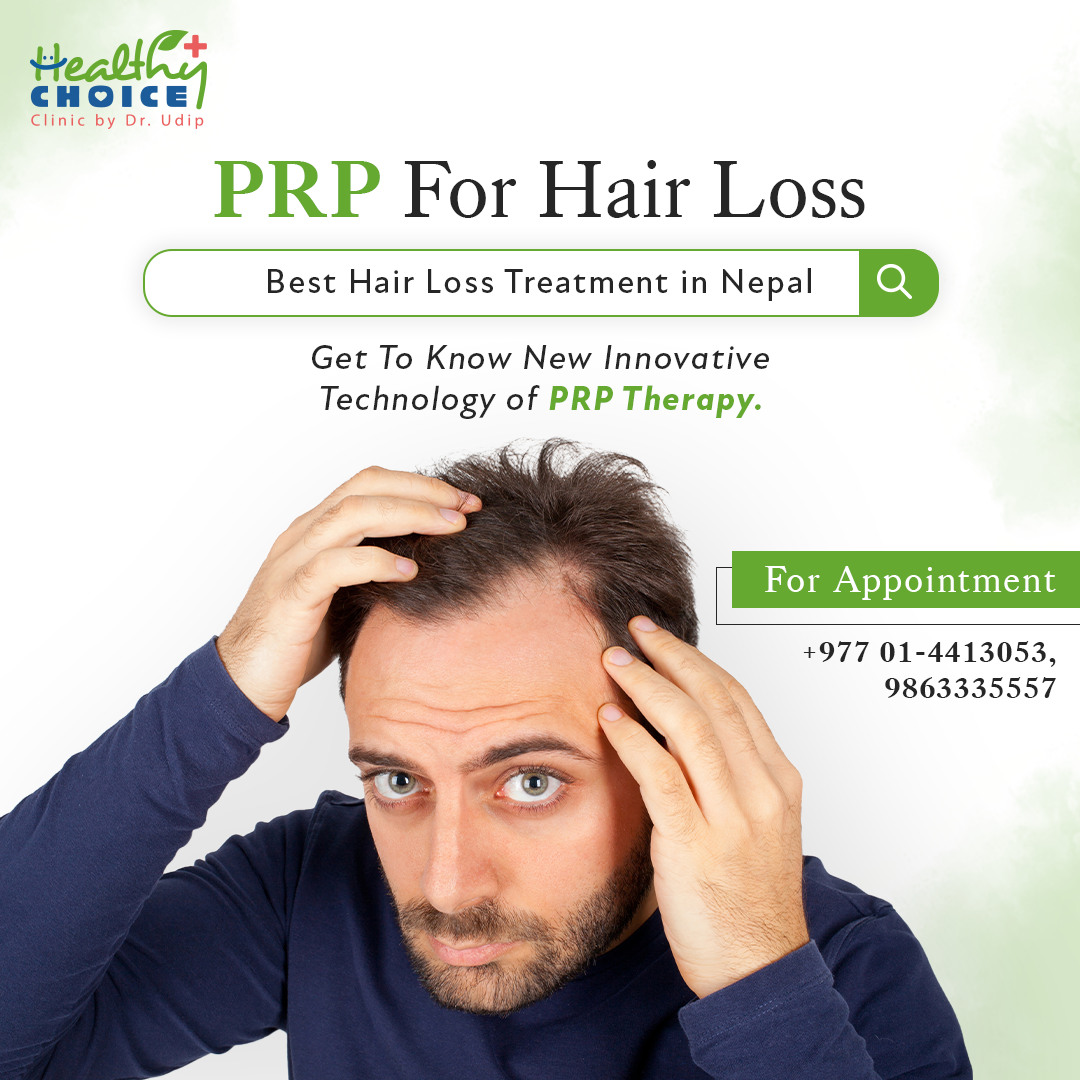PRP-Platelet-Rich Plasma

What is PRP therapy?
The use of platelet-rich plasma (PRP) therapy for hair regrowth is growing in popularity. This is due to the fact that it is a non-surgical procedure that enhances hair growth and thickness by utilizing your body’s natural healing abilities. PRP has been used for more than ten years in medicine to encourage healing in many body regions, but it has only recently gained popularity as a treatment for hair loss.
What is PRP for Hair?
PRP for hair is a non-surgical procedure that enhances hair growth and thickness by utilizing your body’s natural growth elements. A centrifuge is used to separate the platelet-rich plasma from the rest of the blood after blood is drawn from your arm. The scalp is then given an injection of this platelet-rich plasma, which can promote hair growth and enhance the condition of your hair follicles.
So, without having a second thought you can come to us and get your desired and painless therapy done by our expert.
How Does PRP for Hair Work?
Growth factors are released by PRP for hair, which encourages healing and stimulates the growth of new hair. The platelet-rich plasma is so powerful in enhancing the growth and thickness of your hair because it contains these growth elements. The platelet-rich plasma is injected into your scalp to boost the health and nourishment of the hair follicles by promoting blood flow to them. Additionally, it starts the growth phase of the hair cycle, which stimulates hair growth. Increased blood flow to the hair follicles aids in the removal of waste products and toxins that can cause hair loss. PRP for hair can be used alone or in combination with minoxidil or other hair restoration therapies like hair transplants.

What Are the Benefits of PRP for Hair?
PRP for hair has a number of advantages. Some of them are:
- Non-surgical option: PRP for hair is a non-surgical procedure, therefore no incisions, stitches, or recovery time are required.
- Natural treatment: There are no artificial substances or chemicals used in PRP for hair because it exploits your body’s inherent healing abilities to promote hair growth.
- Enhances hair thickness and growth: PRP for hair works by increasing the blood flow and hair follicles to increase hair thickness and growth.
- Minimal side effects: The most frequent side effect of PRP for hair is minor pain at the injection site.
- Safe and effective: PRP for hair is a therapy option for hair restoration that is both safe and effective and has been utilized for more than ten years in a variety of medical specialties.
Do PRP have Negative Side Effects?
PRP injections are low-risk procedures that often have few negative side effects. You should drink plenty of water and eat before the operation to avoid feeling dizzy because it involves drawing blood. You can suffer some discomfort and bruising at the injection site following the treatment.
Compared to other injectable treatments like corticosteroids, the chance of an allergic reaction is far lower with PRP injections because they are formed of your own cells and plasma. PRP injection dangers that are less frequent include: Bleeding, Tissue damage, Infection, Nerve injuries.
What Can You Expect from PRP for Hair?
Your doctor will draw a sample of your blood prior to the procedure and separate the platelet-rich plasma from the rest of the blood using a centrifuge. A little needle will then be used to inject the platelet-rich plasma into your scalp. Although most people don’t feel any pain during the 30- to 1-hour procedure, some people may feel a little soreness or mild discomfort where the injection was made. For PRP to work effectively on your hair, you might require numerous sessions.
A) Pre-therapy care
To guarantee a safe and successful treatment outcome, there are a few things to keep in mind before having PRP therapy for hair. Here are a few considerations:
- Get an in-depth analysis: A thorough evaluation should be carried out to identify the underlying reason of hair loss prior to beginning PRP therapy. This could entail scalp biopsies, hormone studies, blood tests, or other diagnostic techniques.
- Stop using certain drugs: Some drugs can reduce the efficacy of PRP therapy or raise the risk of problems. These might consist of aspirin, NSAIDs, blood thinners, and specific herbal supplements. Prior to the treatment, your doctor will give you advice on any medication modifications that may be required.
- Avoid drinking too much alcohol and smoking: These behavior’s can hinder recovery and reduce the efficacy of PRP therapy. It is advised to stay away from these things both before and after the treatment.
B) Post-care
There are a few things to keep in mind following a PRP hair procedure to guarantee the greatest results. Here are some things to remember:
Avoid Hair Styling Products: For at least 48 hours following surgery, it is best to refrain from using any hair styling products on the scalp, including gels, sprays, and perfumed oils.
Avoid Exposure to excessive Temperatures: For at least 48 hours following surgery, you should refrain from exposing your scalp to excessive temperatures, including those from a hair drier, hot tub, sauna, or sunbathing.
Avoid Heavy Exercise: To allow for post-operative recovery, it’s necessary to refrain from any physically demanding activities for at least 48 hours following surgery.
Watch for Infection Signs: If you notice any signs of infection on your scalp, such as redness, swelling, warmth, pus, or drainage, you should get in touch with your doctor very once.
Maintain a Healthy Diet and Lifestyle: Eating a nutritious, well-balanced diet, staying hydrated, and getting enough sleep can all aid in the recovery process and encourage hair growth.
Using your body’s own natural healing abilities, PRP for hair is a safe and effective treatment option for hair restoration that can increase the thickness and growth of your hair. It is a minimally invasive non-surgical treatment, making it a desirable alternative for those who want to avoid surgery. It’s crucial to keep in mind that outcomes can vary and that not everyone has an increase in hair growth. Before undertaking any medical procedure, it’s important to speak with a trained professional who can advise you on if PRP for hair is the best course of action for you.

